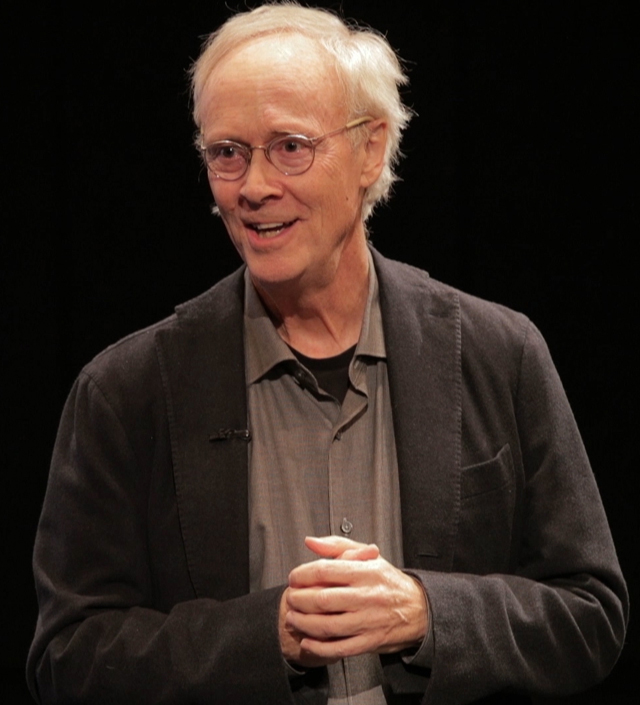“Only if we understand will we care. Only if we care, will we help. Only if we help shall all be saved.” — Dr. Jane Goodall

For many years there has been a great controversy over whether or not special services, gifts, and small and large acts of kindness truly impact client retention or not. I am not referring to intellectual studies or stage debates, or talks at major industry events. I am actually only speaking about what has gone on in my own mind for decades.
So, I decided to share my thoughts on what I refer to as “wows” and have you decide for yourself. I will say that my thoughts are greatly influenced by my best clients, whom I consider to be outstanding financial advisors.
Wows have two parts:
- Delivering on your client’s and your expectations of outstanding financial advisory experiences.
- Taking an occasional extra step that has little to do with the technical aspects of the financial advisory experience.
Delivering on expectations
To me, delivering on expectations is the single most important “wow” for clients. It accounts for perhaps 80% of the wow. I truly hope you are already taking these steps, which must include:
• A proactive contact plan. You and your client must agree to it and review it annually to ensure it continues to meet the needs of your client. Meet in person with clients and reach out to them by phone, text or email. For example, I suggest sending personal emails after your review meetings to summarize a meeting and outline follow-up steps for both you and the client. General emails you send periodically to your base, including newsletters or firm notices, don’t count as personal-contact emails.
• Highly responsive return calls. Categorize all calls as either 411 and 911 calls. You or a member of your administrative team should handle 911 (emergency) calls upon receipt. Answer 411 (non-emergency) calls on the same day, perhaps within four hours. To minimize disruption to your day, I recommend scheduling two callback periods: late morning and late afternoon.
• Attentive listening. Make sure you fully understand your client’s needs and wishes.
• Comprehensive wealth management
Close the gap
A Spectrem Group study uncovered an average gap of 73% between the sixteen services that clients expect compared with the services they actually receive. In other words, almost three-quarters of investors do not receive what they expected, hoped for or, in some cases, needed. Outstanding financial advisors consider all their client’s needs. Here are some of my suggestions.
- Explain your rationale. Clients usually don’t want to understand exactly how you use your strong analytical skills and make sound investment decisions, but you must be able to explain what you do in terms they understand. Clients often want to know, “Why am I invested the way I am?” And if they understand what you’re doing for them, they’re less likely to defect to competitors who ask them that question.
- Value clients. Clients must feel, through every communication, that they are No. 1. It goes without saying that you need to time to understand their financial situations and provide personalized recommendations to help them achieve their objectives.
- Pay attention to detail. In review meetings, clients should at least be able to understand the “whys” of your advice for their financial plans and portfolios. Do they understand their net-worth components, and the impacts on their plans from taxes, expenses, risks, debts, etc.? Do they understand how they are invested?
- Demonstrate trustworthiness and integrity. Do what you say you are going to do — all the time. This requires processes and systems, as well as proactive communications plans that disclose conflicts of interest and maintain transparency.
- Show empathy. Having a deep understanding of your clients’ needs, goals, and fears — through proactive and reactive communication — lets you address their unique situations. At the same time, your emotional intelligence allows you and your team to understand and manage clients’ emotions. This can give them the confidence they need during challenging personal and financial times and helps build strong relationships.
- Be professional. Sharing your teams’ bios, continuing education and professional-development efforts can go a long way. Communicating that you are up to date with the latest financial trends, regulations, certifications and investment strategies — as well as demonstrating your passion for service excellence in your work — shows you are committed to clients and genuinely care about them and their financial success.
Extra steps
If you deliver the above basics with excellence, you need little else for outstanding retention. As my clients have said, gifts may help you retain clients who receive poor advisory services for a while but not at the rates you would like.
However, there’s always more you can do to make it that much tougher for competitors to steal one of your clients. That “something more” can be unusual or unexpected experiences.
Taking an occasional extra step that has little to do with the technical aspects of the financial advisory experience. I say occasional because these extra steps should focus on situations that don’t happen every day, certainly not to any one client. These extra steps can offer a big wow factor:
- Personal attention in times of need. My longest-term client, an advisor who has in-depth relationships with his clients, is a good example. He is aware that his aging clients are losing people due to death, and he knows who is lonely, depressed and may need another friend. He does his best to be that friend. He gives these clients personal attention on the phone or over lunch or coffee. His time and caring are his wow. There are few if any greater gifts one can give than time and attention. Kindness counts.
- Handwritten thank-you notes. The best ones are composed on personal stationery, hand addressed and mailed with a forever stamp. Notes can be used to express appreciation and celebrate achievements, important dates, etc.
- Attention beyond business hours. Clients appreciate the delivery of services before or after normal hours when the situation warrants it.
Other wows
Some years ago, Janus Henderson Knowledge Labs published “The Book of WOW.” It provides many ideas and stories about how advisors have enhanced client loyalty. The book suggests initially gathering “client wisdom” from your top 10 or 20 clients and building that database over time as deep in your book as you would like. It also suggests that advisors develop the habit of going beyond the financial basics and into the realities of how clients live and think. And to be curious.
Many advisors are good about amassing client wisdom. This includes being able to answer such questions as: Who does (or did) the client work for? What do (did) they do professionally? Who are their family members? Where do they vacation? What organizations and clubs do they belong to? What are their hobbies? You get the idea.
Then there are gifts: A bottle of wine waiting for clients in their cruise cabin, Starbucks gift cards and gift certificates for kids’ birthdays, special tours of vineyards or Washington, D.C. sites from your personal contacts, tax season survival kits for CPAs during tax season, chocolate chip cookies in your office, charitable donations, food trays, spa days, baby gifts, books including travel guides. The list goes on of nice things to do for clients at appropriate times. Thoughtfulness is a good thing, and it can only help when clients know you are thinking about them.
More than chocolate
My financial advisor sends us two bags of chocolate-covered berries at Thanksgiving or Christmas from Harry & David. I like the milk chocolate and my wife likes the dark chocolate. I’d be fine with two family-sized bags of Reese’s Peanut Butter Cups. But here’s the truth: The gift is nice but it has no impact whatsoever on our relationship or retention with our advisor.
In fact, I don’t think gifts should be a big deal. They have little to do with what I and others use a financial advisor for and the real value they provide. The real wow for me is when a financial advisor gives themselves and their time. Here’s a great example:
An advisor I know helped guide a client whose adult child was struggling through bankruptcy and had lost her home to foreclosure. The advisor assured her client that helping the child and her grandchildren was the right thing to do and showed her how she could afford to without jeopardizing her retirement. She also urged the client to establish some ground rules, including selecting the new home she’d be heavily financing.
The advisor helped her client budget how much to contribute and even helped find the mortgage. The client made the down payment and co-signed the mortgage, which her child eventually refinanced under her own name. The client later forgave the child the down payment as an advance on their legacy.
The wow for the client was the financial advisor focused on the client’s family rather than on the extra AUM fees she could have made had the client not tapped a brokerage account to help her child.
Must-haves
Regardless of what you choose to do, anything you do for the client must be honest, sincere, and genuine with no intention or expectation of anything. Yes, a thank you would be appreciated. But you do what you do for clients because you believe it’s important, appropriate and the right thing to do. Even Cialdini’s reciprocity principle of influence says if you give anything as a ploy, the receiver is no longer obligated to respond reciprocally. Gifts, favors, time, etc. must be given meaningfully without the thought of a response.
There are differing views on how much impact wows can have on relationships and retention. I have my doubts about token gifts and prefer to give myself and my time. I would love to hear about your beliefs and experiences on the value of all kinds of wows.
David Leo is founder of Street Smart Research Group LLC. He is an author, speaker, coach, consultant, and trainer to financial professionals. David has worked in the financial services industry for decades, originally as a consultant with IBM and then with UBS/Paine Webber before starting his own firm. If you would like more information about his services, contact him at David@CoachDavidLeo.com or visit www.CoachDavidLeo.com.







